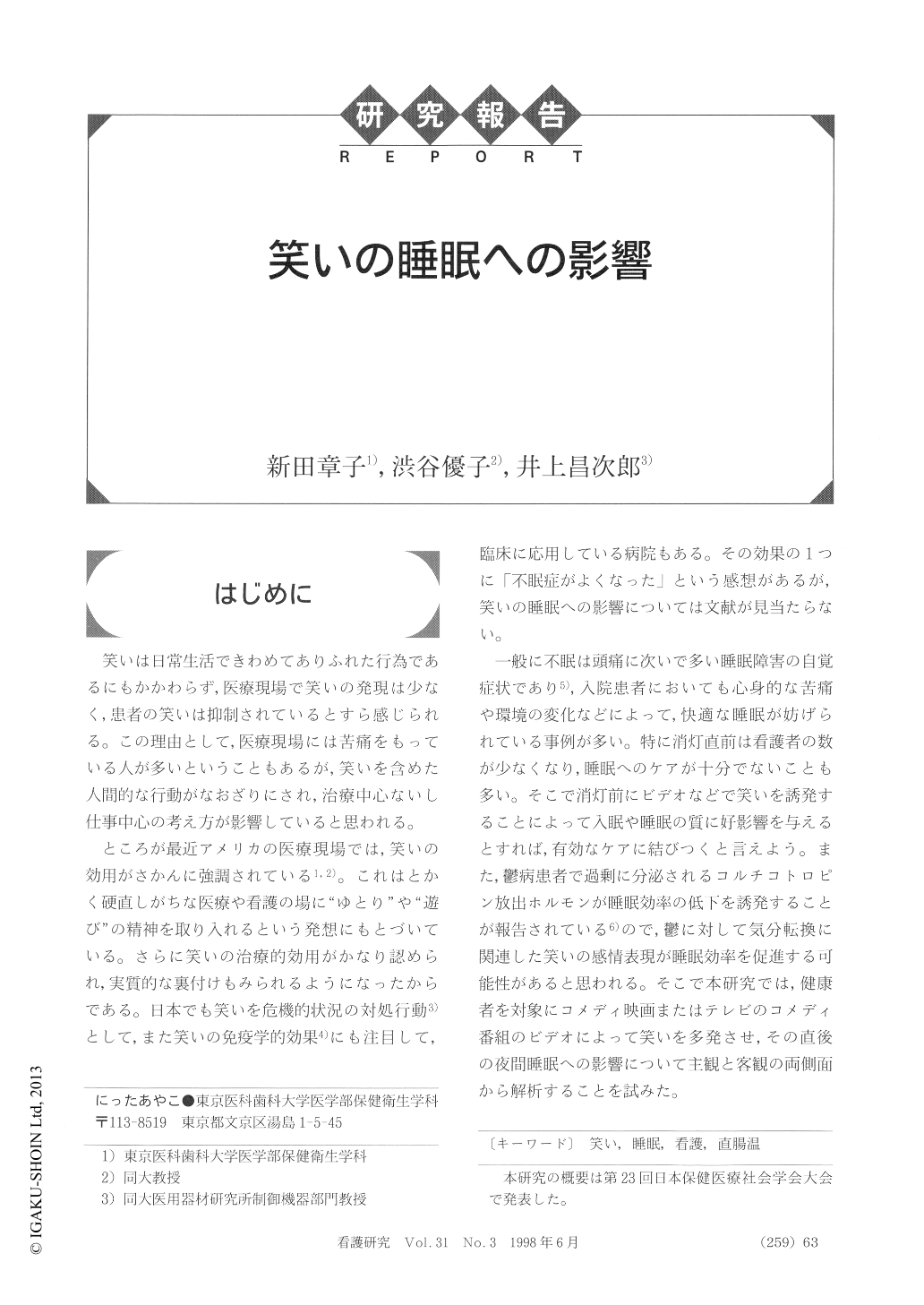Japanese
English
- 有料閲覧
- Abstract 文献概要
- 1ページ目 Look Inside
- サイト内被引用 Cited by
はじめに
笑いは日常生活できわめてありふれた行為であるにもかかわらず,医療現場で笑いの発現は少なく,患者の笑いは抑制されているとすら感じられる。この理由として,医療現場には苦痛をもっている人が多いということもあるが,笑いを含めた人間的な行動がなおざりにされ,治療中心ないし仕事中心の考え方が影響していると思われる。
ところが最近アメリカの医療現場では,笑いの効用がさかんに強調されている1,2)。これはとかく硬直しがちな医療や看護の場に“ゆとり”や“遊び”の精神を取り入れるという発想にもとづいている。さらに笑いの治療的効用がかなり認められ,実質的な裏付けもみられるようになったからである。日本でも笑いを危機的状況の対処行動3)として,また笑いの免疫学的効果4)にも注目して,臨床に応用している病院もある。その効果の1つに「不眠症がよくなった」という感想があるが,笑いの睡眠への影響については文献が見当たらない。
Six young female subjects watched a 90-min movie program on TV screen starting 3.5 hours before retiring at 23:00. Comical video programs caused significantly long duration of pleasant laughter (1930 sec) as against educational ones (56 sec). The laughter induced dynamic fluctuations of rectal temperature and blood pressure during and after video watching. Rectal temperature at post-laughter nights remained higher than that at control nights. Polygraphic records revealed that the laughter experience significantly delayed sleep onset and reduced the amounts of total sleep, slow wave sleep and rapid-eye-movement sleep. However, the subjects reported better subjective feeling at awaking and less sleepiness during daytime. In conclusion, the laughter-induced emotional excitement in the evening seems to deteriorate the quantity and quality of sleep but improve the subjective psychological state on the next day.

Copyright © 1998, Igaku-Shoin Ltd. All rights reserved.


